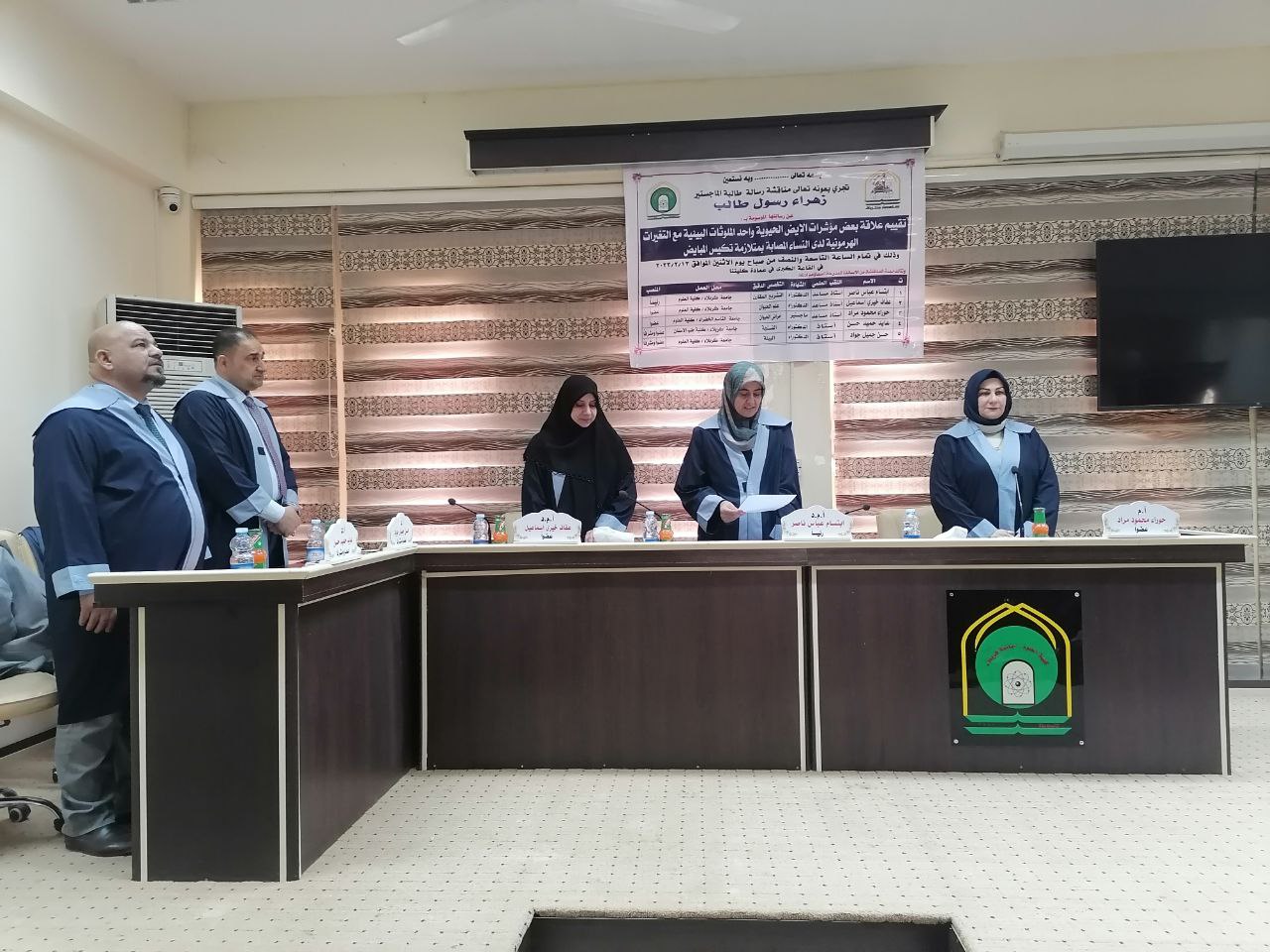A dissertation in the College of Science at the University of Kerbala has discussed the evaluation of the relationship between some vital metabolic indicators and an environmental pollutant with hormonal changes in women with polycystic ovary syndrome, by Zahraa Rasool Taleb, including four chapters, an introduction, reviews references, materials and methods of work, and the fourth chapter Results and discussion. A study of some vital metabolic indicators such as Guerlain, leptin, and adiponectin, in addition to indicators of insulin resistance, sugar, triglycerides, cholesterol, and an environmental pollutant such as lead, with hormonal changes occurring in women with PCOS, and the relationship of these indicators and hormones with each other and with the environmental pollutant lead.
This study aimed to investigate the existence of relationships between some metabolic biomarkers such as Guerlain, leptin, and adiponectin, as well as indicators of insulin resistance, sugar, triglycerides, and cholesterol, with the hormonal changes that occur in women with PCOS (luteinizing hormone, follicle-stimulating hormone, testosterone, progesterone, and estrogen) and the relationship with one of the environmental pollutants, like lead.
The thesis has recommended conducting a molecular study of the two biomarkers, crelin and leptin, to investigate their role in PCOS and their association with this syndrome, and conducting a study that includes a larger sample than the current study and includes body mass index levels with more significant variation, as well as a study on polluting environmental factors and the relationship of these pollutants with PCOS and knowing. The extent of its impact, by studying a sample that is more susceptible to the polluting factor.






























































